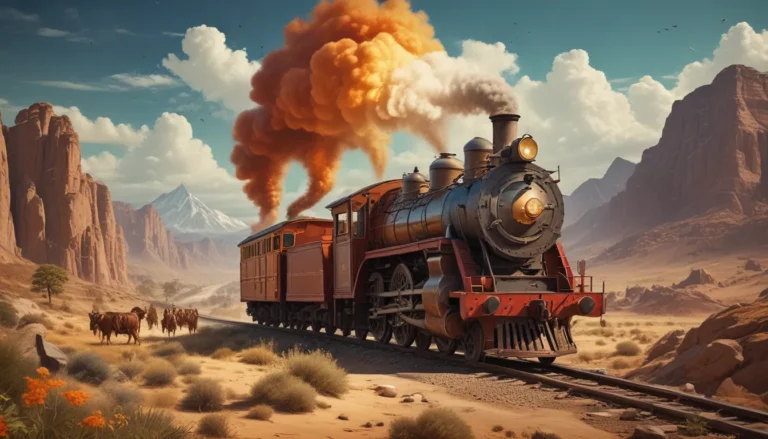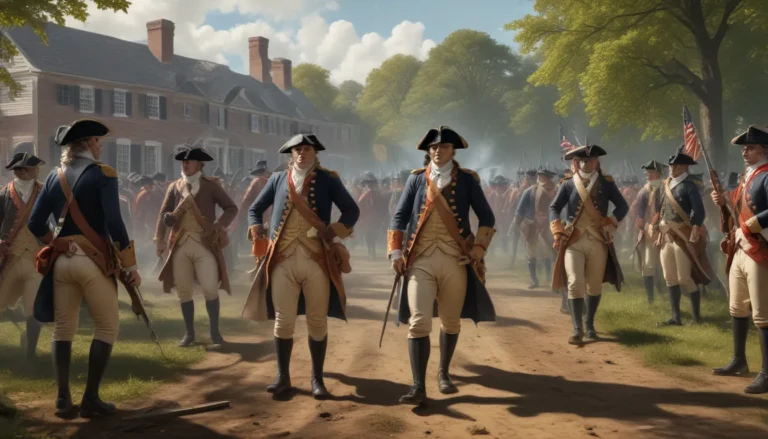The images in our articles may not match the content exactly. They are used to grab your attention, not to show the exact details in the text. The images complement the text but do not replace it.
Welcome to the captivating world of historical archives, where the tapestries of the past unfurl before our eyes, offering a glimpse into the rich tapestry of human history. From ancient manuscripts to digital records, these repositories of the past hold the secrets to our cultural heritage, allowing us to unravel the mysteries of bygone eras. Join us on a journey as we explore 23 fascinating facts about historical archives, delving into the treasures they hold and the impact they have on our understanding of the world.
Exploring the Essence of Historical Archives
Historical archives serve as time capsules that preserve the essence of our collective history. These repositories house a myriad of documents, records, and artifacts that offer a firsthand perspective on the past. From letters and diaries to photographs and reports, archives provide valuable insights into the evolution of societies, shedding light on the events and individuals that have shaped our world.
Unearthing the Chronicles of Ancient Archives
- The ancient city of Ebla, located in modern-day Syria, is home to the oldest known archives dating back to around 2500 BCE. These archives, comprised of thousands of clay tablets written in a Semitic language, provide a window into the culture, economy, and politics of the ancient world.
The Crucial Role of Archives in Preserving History
Archives stand as guardians of our history, safeguarding the physical remnants of the past for future generations. Without these repositories, much of our cultural heritage would be lost to the sands of time, making archives indispensable in our quest to unravel the mysteries of the past.
Embarking on a Journey Through the World’s Largest Archives
- The United States National Archives and Records Administration (NARA) ranks among the largest archives globally, housing billions of documents, including iconic pieces such as the Declaration of Independence and the Constitution of the United States.
- The Archives Nationales in France boasts an extensive collection dating back to the Middle Ages, spanning over 800 kilometers of shelves and offering a wealth of historical treasures to explore.
Navigating the Labyrinth of Archives
Archives are structured in a manner that preserves the original order of records, known as provenance, ensuring that researchers can understand the context in which documents were created. Finding aids such as catalogs and indexes play a crucial role in helping individuals navigate archives, providing summaries and descriptions of collections to facilitate research.
Riding the Wave of the Digital Revolution in Archives
- With the advent of digitization, many archives have transitioned to digital formats, making historical documents more accessible to the public and aiding in the preservation of originals.
- Digital archives offer advanced search capabilities, enabling users to find information quickly and efficiently, revolutionizing the way we engage with historical records.
Harnessing the Power of Archives for Research
Archives serve as invaluable resources for researchers, providing primary sources that form the foundation of accurate and detailed historical narratives. Through archives, researchers can unearth new perspectives and information that challenge existing beliefs about the past.
Unveiling Hidden Gems in Archives
- Some of the most thrilling discoveries in archives are those that were previously lost or unknown, ranging from lost literary works to correspondence between historical figures that reshaped our understanding of the past.
- In 2012, a previously undiscovered music composition by Wolfgang Amadeus Mozart was unearthed in the archives of the Stiftung Mozarteum in Salzburg, Austria, showcasing the endless possibilities that archives hold.
Archives: Bridging the Past and Present in Education
Archives play a pivotal role in education, offering students and educators primary sources that breathe life into history, fostering a more immersive and engaging learning experience. Many archives provide workshops, tours, and educational programs to help students hone their research skills and deepen their historical understanding.
Paving the Way for the Future of Archives
- As technology evolves, the landscape of archives is also changing, with virtual reality experiences and interactive online platforms enhancing traditional archival research.
- The preservation of digital records is a pressing issue, as archives adapt to ensure the accessibility of today’s digital content for future generations, safeguarding our digital heritage for posterity.
Safeguarding Archives Against Adversity
- Protecting archives from natural disasters, wars, and other threats is a critical concern, as the loss of archives would erase irreplaceable pieces of history.
- Efforts to digitize collections and store copies in multiple locations are key strategies in safeguarding archives against potential loss, ensuring the preservation of our cultural legacy.
Archives as Sources of Creative Inspiration
- Beyond their historical value, archives serve as wellsprings of creativity, inspiring filmmakers, writers, and artists to craft new narratives and stories that resonate with contemporary audiences.
- Historical letters, diaries, and other archival materials have inspired numerous works in literature, film, and theater, bridging the gap between past and present in creative endeavors.
Empowering Public Access to Archives
- Ensuring public access to archives is crucial in democratic societies, allowing citizens to examine government records, hold leaders accountable, and connect with their national history.
- Many archives offer free access to their collections, both in person and online, underscoring a commitment to education, transparency, and the dissemination of knowledge.
Archives: Guardians of Truth and Authenticity
- In an era rife with misinformation, archives serve as beacons of truth, preserving original documents and records that underpin factual historical research, separating fact from fiction in our collective memory.
Reflecting on the Rich Tapestry of History
Our journey through the annals of history via archives has been a riveting odyssey, unearthing 23 captivating facts that have kindled our curiosity and deepened our reverence for the past. From ancient manuscripts to digital records, each fact has opened a window into the lives of those who came before us, enriching our understanding of the world around us. As we chart our course forward, let us carry forth the lessons and legacies of the past, ensuring that our collective history continues to illuminate the path for future generations. Remember, history is not merely a sequence of dates and events; it is the shared memory of humanity, with each page in an archive contributing to the intricate mosaic of our cultural heritage.
Join Us in Exploring the World of Historical Archives
Our dedication to providing engaging, accurate, and insightful content drives our mission to unravel the mysteries of history through the lens of archives. Each fact you encounter on our platform is contributed by individuals like you, offering a diverse array of perspectives and knowledge. Our meticulous editorial process ensures the highest standards of authenticity and reliability, guaranteeing that the facts we share are both captivating and credible. Trust in our commitment to quality and authenticity as you embark on a journey of discovery and learning with us.






